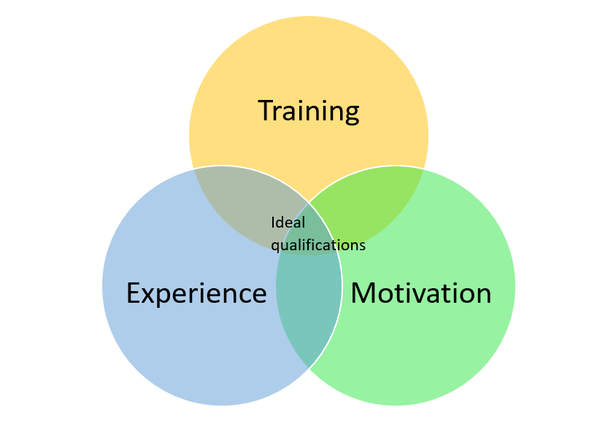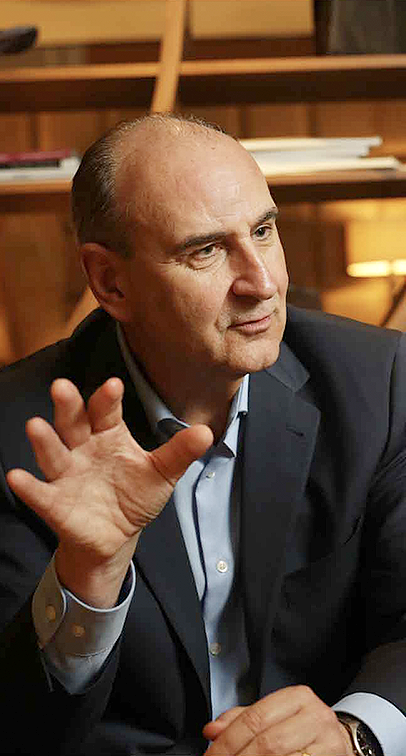THE WORLD’S #1 EXECUTIVE COACHING AND BUSINESS COACHING BLOG SINCE 2017.
Everything You Should Know About Business Coaching
July 2, 2018 | Category: Blog
Companies in every industry and of every size hire business and executive coaching services. Individual entrepreneurs hire business coaches too. Their reasons for doing so vary widely.
Sometimes coaches are called upon when a business changes its direction significantly.
The CEO of a business that started as a sole proprietorship may not understand their role completely, having spent so many years making the business functional and operational. A company may hire a business coach for its CEO when the business’ direction changes significantly. Some companies, as a rule, hire a business coach for each new C-level executive they bring on board.
The ambitious junior level executive may hire a business coach to assist their trajectory to the top level of company leadership. And while some companies may hire a business coach in an effort to save a top leader who has gone off the rails, this is far less common than it used to be. For many companies, this is seen as “throwing good money after bad.”
Today, it is far likelier that a company will invest in a business coach for a leader in whom they have great confidence, so as to maximize their return on investment. If you are a top-level leader and your company has suggested hiring a business coach for you, then you should take it as a major vote of confidence.
Business coaching is an investment, and companies aren’t going to spring for that kind of investment unless they are confident that it will pay off. Here’s what you should know about business coaches, whether you are involved in hiring them, or will be working with one.
What Business Coaches Do (And Don’t Do)
Some people confuse business coaches with business consultants. They’re not the same, although their techniques and tools may overlap some. In general, consulting is far more prescriptive than coaching. The consultant, for example, would advise a company on how to solve a problem, while the business coach would work with the client to build their capacity and confidence as a leader. Consulting is more externally driven, while coaching is based on tapping internal motivation.
Coaching and consulting are complementary, not competing.
A business coach will not train a C-level executive on how to do their job. The executive is expected to know how to do it, or else they wouldn’t have been appointed to the position in the first place. A business coach isn’t a therapist either, because there are qualified people who do that job. Business coaching can be viewed as analogous to sports coaching, something many people are familiar with.
A child who wants to play baseball probably understands the basics of the game, like what you’re supposed to do when you’re at bat, on base, or when your team is in the field. Maybe you’ve watched MLB players swinging a bat, or practiced in the backyard, so you have the general idea of what to do.
The job of the coach is to evaluate how you swing a bat, how you hold your hands, your stance at the plate, and how you evaluate pitches. The coach then offers an objective opinion about what you do well, and where you could improve. As you improve your technique, your coach offers minor corrections and encouragement and helps you practice until your improved technique becomes second nature. Business coaching is similar.
What Clients Want from Business Coaches
The individual who works with a business coach wants to come out of the other end of the process as a more effective leader, whose own skills are sharpened, and who is more effective as a delegator and a communicator. They want to inspire the confidence of the people who report to them, and they want to make the organization better in some measurable way. They often want to use the coaching experience to help them develop emerging leaders and create a long-term plan of succession, to be confident that their good work will carry on long after they’re gone.
Sometimes the individual coaching client has specific skills they want to work on, like effective delegation, communication, or avoiding micromanaging. Other times, the individual wants to take their overall performance to a higher level. Working one on one with a coach, it’s possible to clarify and articulate goals and define the objectives that lead to accomplishing it.
Coaches may work with clients on specific skills, like interpersonal skills or communication skills.
Businesses that invest in business coaches for their top leaders want to ensure the best performance from their top tier. They may want the brand new top executive to develop confidence in their new role, or the new CEO to be prepared to grapple with the many challenges ahead. If a business is changing direction, coaching may be an investment that helps ensure that top leadership pivots to new expectations and responsibilities effectively.
How Business Coaches Gain Their Qualifications
Unfortunately, anyone can call themselves a business coach, because there is no single qualification the way there is for a doctor or a CPA. Fortunately, coaching has grown enough that people know they need to dig a little to ensure that the person calling themselves a business coach has done something more than having business cards printed. Today there are business coach training programs as well as training accreditation programs, so you can find out if someone claiming to be a business coach has undergone training in an accredited program.
The importance of business experience in a business coach would be hard to overstate. Even the most highly trained coach needs to have experience in business (though not necessarily in a specific industry) to be effective when working with a top business leader. Many business coaches have owned or operated businesses or have been high-level executives themselves. Knowing what it’s like from the point of view of the client is invaluable to the business coach.
Motivation in a business coach is also indispensable. It’s hard to put in effort and demonstrate enthusiasm in the presence of a coach who seems to be “phoning in” their coaching services. Most qualified, reputable coaches will openly share what motivates them and where they’re coming from. Motivation often comes from life experience and overcoming obstacles. And most coaches are happy to share with you where their motivation comes from.
The ideal business coach combines training, experience and motivation.
How to Evaluate Business Coaches Before Hiring One
There will always be a strong element of self-trust in the selection of a business coach. Sometimes there simply isn’t a good personality fit between the coach and client, and that’s OK. Good rapport is necessary for coaching to work, and much time can be wasted trying to make a bad-fit coaching relationship work.
Asking for personal recommendations is a tried and true way to identify great business coaching candidates. And fortunately, in the age of the internet, we have access to many tools that can help us understand what drives and motivates coaches. Social media accounts can often grant insight into whether the person is genuine and practices what they preach.
If a coach you consider working with has a blog, dig into it. There you’ll learn more about their philosophy, their tools, and their commitment to coaching. A blog should provide you with unique and original content, rather than just content repackaged from other coaches or from their coach training program.
While it’s not strictly necessary, most clients choose business coaches with direct business experience in the same industry or a closely-related one. A financial services client may get good results working with a coach with experience in the healthcare industry, but it only stands to reason that they would probably get better results from working with a coach who has work experience in financial services themselves.
Many professionals prefer to work with coaches who have experience in the same industry as them.
Though coaches typically have confidentiality agreements with their clients, most of them will have some clients whom you can contact to learn more about their experience. If you have this opportunity, do it! You can learn so much from talking with people who have directly encountered the coach you are considering working with.
Tools Business Coaches Use
Between the time you sign an agreement with a coach and your initial meeting with them, you are likely to receive materials to help you get oriented. Coaches use a variety of tools, especially at the outset of the coaching relationship.
Some may use personality or skills inventories, or they may have developed their own questionnaires that inform them about who the client is, what drives them, and what goals they want to pursue. Coaches should explain exactly what their tools are for, and how they will be used to help you achieve your goals.
It is important to note that while assessment tools are seen as highly necessary and useful by most successful business coaches, use of those tools is not the same thing as coaching. The tools are there to help the coach get to know about you, so they can help you as you define goals and set objectives.
And it should go without saying, but expect your business coach to use technology as a tool. You may meet in person with your coach at the beginning of your work together, but your regular check-ins and progress reports may be done by phone or video conference. Some coaches use communication modes like texting or live chat, and others don’t. You can expect to use email with your coach, if only to receive preliminary materials. The more comfortable you are with communication technology, the easier the coaching process will be for you.
How Long the Coaching Process Lasts
Each coach-client combination will work out a term of engagement during which they plan to complete the bulk of the coaching process. This term will vary from coach to coach, from client to client, and will depend on the individual client’s needs. As a general guideline, you can expect the business coaching process to take six months to one year, give or take. During this time, it behooves you to give your time and effort to the coaching process, because it really is a unique opportunity to make yourself more effective as a leader and as a human being.
Some, but not all coaches offer limited follow-up services after the main period of coaching is over. This could be, for example, a follow-up phone call after one month, three months, and six months. If your coach offers follow-up services, you should avail yourself to them. Coaching is designed to “stick,” but the periodic catch-up call can actually work wonders as far as refreshing your commitment to what you have learned.
If your business coach offers follow-up calls after the coaching term is completed, you should take advantage of this service.
Before hiring your coach, you should discuss how long the typical coaching engagement lasts, when and for how long in-person meetings will take place, how frequently you and the coach will check in with each other during coaching, and whether there will be any follow-up afterward. Knowing the proposed schedule will allow you to be prepared so that no time spent with your coach is wasted.
Changes Clients Should Expect after Business Coaching
Businesses that invest in business coaching for their top executives expect a strong ROI. They want their top leadership to go from good to exceptional, and they want leaders who will be better equipped to help the company reach its goals. Businesses also expect coached executives to be even stronger representatives of the company when dealing with the public or other top industry leaders.
Businesses may have specific goals for the executives they hire coaches for. They may want one top leader to develop better communication skills, and they may want another to break their tendency to micromanage, for example. In general, however, they want executives who have gone through the coaching process to become more self-aware, motivated, and committed to their own and organizational goals.
The individual involved in executive coaching should expect to become more self-aware and to understand themselves better by the time the coaching term has concluded. Not only should they expect to have reached the goals they set out to (assuming they and the coach have done their work consistently), they should expect to be better leaders, better colleagues, better representatives of the company, and better people in general.
Unquestionably, good business coaching requires hard work from both participants. It’s unreasonable for an executive to expect a coach to come in, wave a proverbial magic wand or say some magic words and somehow transform them into outstanding leaders. Good coaching requires commitment and follow-through, but when both parties put in the work, the results can be disproportionately great!
The top executive who finds out they will be working with a company-hired business coach should in no way feel like this indicates they need “remedial” attention. There may have been a time when this was true, but today’s businesses aren’t going to make the investment of time, effort, and money to hire a coach for someone they don’t have the absolute highest hopes for. In fact, if your boss says they’re hiring a coach for you, it’s a good thing. It means the company believes in you and believes you are capable of greatness.
Companies don’t invest in coaching for people they don’t believe in.
I have been involved in business transformation and coaching for over 30 years, and I have seen the coaching industry grow and change tremendously. Today, the International Coach Federation exists for the accreditation of top coaching programs, and people are used to world-class business leaders working with coaches, just like world-class athletes and artists do. I myself was fortunate to work with the late Steve Jobs and other top business leaders.
Glossary of Terms
Accreditation – official recognition that someone or some organization has fulfilled requirements or qualifications to perform a particular activity. Some business coach training programs are accredited.
Business coach – a professional who works one-on-one with individuals who want to improve their leadership skills, prepare for a major new work role, and become the most effective professional they can be
Coach training program – the program that trains business coaches on how to coach clients. Some are accredited, and some are not, and not all coach training programs are of high quality.
Extrinsic motivation – motivation that comes from the outside. For example, being motivated by “We have to make these numbers by the end of the month” is an extrinsic motivator. It is effective in the short term, but intrinsic motivation works better long term.
Intrinsic motivation – intrinsic motivation comes from within. It is what makes a person want to be better today than they were yesterday. Intrinsic motivation applied correctly, helps a person achieve goals for the right reasons, and generally leads to better long-term results.
Personality inventory – an evaluation or assessment tool used by business coaches (and other types of professionals) to gain a better understanding of a client’s various personality traits, apart from their role as a professional
Remedial coaching – coaching to try to “turn around” a leader who is faltering. Remedial coaching is rare these days because most business leaders understand that coaching gets the best results when used with highly talented people who show great promise.
Self-awareness – a person’s conscious understanding of their own feelings, motivations, and the makeup of their character. It is a primary component of honesty with oneself.
Skills inventory – an assessment tool used by many coaches and other professionals (like recruiters) to learn more about the particular skills a professional brings to the job. Coaches often use these to identify skills gaps and help develop appropriate goals.










